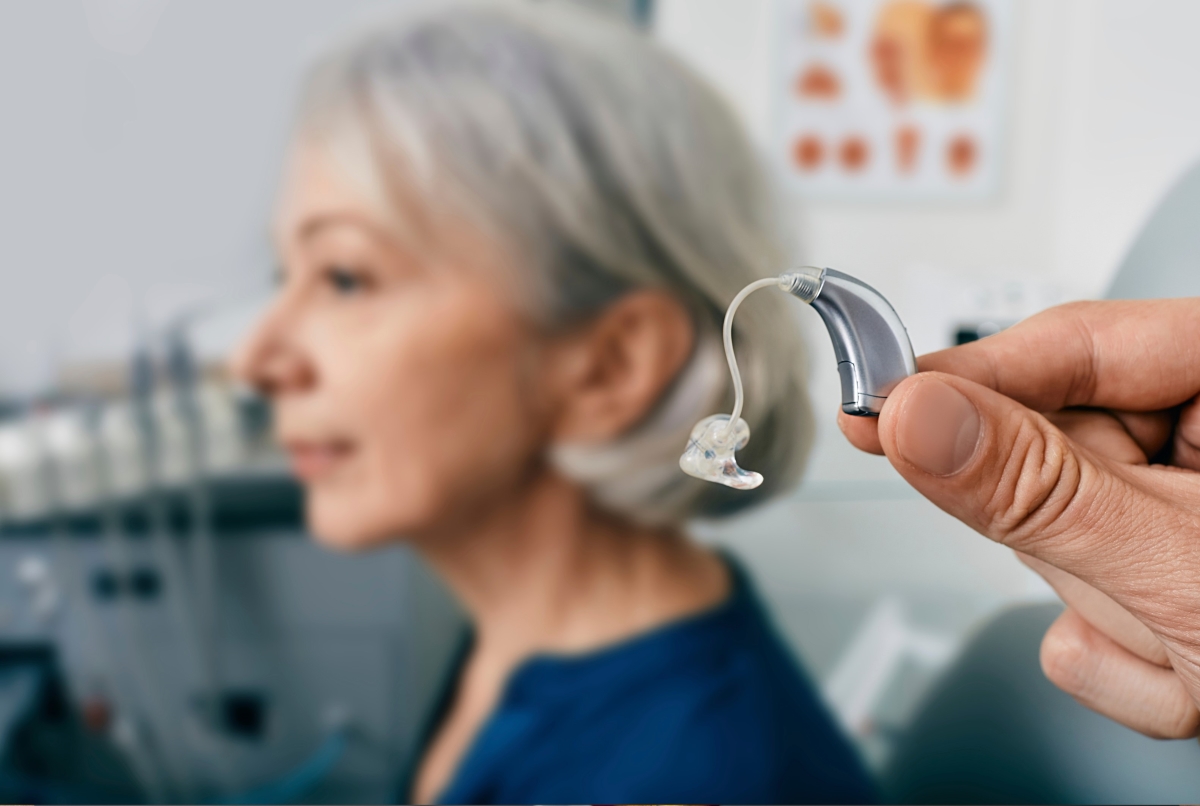Health Screenings: Important Check-Ups for Seniors

Maintaining good health is a priority at every stage of life, but it becomes even more crucial as you enter your senior years. Regular health screenings provide early detection of potential issues, allowing for timely treatment and prevention of more serious conditions. For seniors, staying proactive about health check-ups can lead to longer, healthier lives and the ability to enjoy independence for as long as possible.
In this blog post, we’ll highlight the most important health screenings for seniors, explain why they matter, and how they can contribute to your overall well-being. By understanding what check-ups are essential, you can take control of your health and ensure you’re staying on top of any potential risks.
1. Blood Pressure Screening
High blood pressure, also known as hypertension, is often referred to as the “silent killer” because it can go unnoticed for years while causing serious damage to the heart, arteries, and other vital organs. Left untreated, high blood pressure increases the risk of heart disease, stroke, and kidney problems. For seniors, regular blood pressure checks are crucial in managing heart health.
Why It’s Important: As people age, arteries naturally stiffen, which can contribute to higher blood pressure. By monitoring your blood pressure regularly, you can catch any changes early and take steps to manage it, whether through lifestyle changes, medication, or both. The American Heart Association recommends checking your blood pressure at least once a year or more frequently if you have a history of high blood pressure.
2. Cholesterol Test
Cholesterol is a fat-like substance that can build up in the arteries and lead to blockages, increasing the risk of heart disease and stroke. A lipid panel test measures your levels of LDL (bad cholesterol), HDL (good cholesterol), and triglycerides, providing a snapshot of your heart health.
Why It’s Important: High cholesterol often shows no symptoms, but it can significantly raise the risk of heart attacks and strokes. Regular cholesterol screenings, typically every five years or more frequently if needed, can help you manage your levels through diet, exercise, and medication.
3. Bone Density Test

Osteoporosis, a condition where bones become weak and brittle, is a major concern for seniors, particularly women. A bone density test measures the strength of your bones and assesses the risk of fractures, especially in areas like the hips, spine, and wrists.
Why It’s Important: As bones lose density with age, seniors are at a higher risk for fractures, leading to significant mobility issues and long recovery times. Early detection of bone loss allows you to take preventative steps such as increasing calcium and vitamin D intake, engaging in weight-bearing exercises, or taking medication to strengthen bones. The National Osteoporosis Foundation recommends that women aged 65 and older and men aged 70 and older get a bone density test.
4. Colon Cancer Screening

Colon cancer is one of the most common types of cancer in older adults, but it’s also one of the most preventable through early detection. Screenings can help identify polyps or growths in the colon that may develop into cancer if left untreated.
Why It’s Important: Catching colon cancer early increases the likelihood of successful treatment and can prevent the disease from spreading. The American Cancer Society recommends that adults aged 50 and older have regular colon cancer screenings, such as a colonoscopy, every ten years or more frequently, depending on personal and family medical history. There are also non-invasive tests like stool-based screenings that can be done more regularly.
5. Eye Exams

Vision tends to decline with age, and conditions like cataracts, glaucoma, and macular degeneration become more common among seniors. Regular eye exams are essential to maintaining eye health and addressing vision problems before they become severe.
Why It’s Important: Early detection of eye issues can prevent vision loss and improve quality of life. Many eye conditions can be managed more effectively when caught early. Annual comprehensive eye exams are recommended for seniors, especially for those with diabetes, a history of eye issues, or other risk factors.
6. Hearing Tests

Hearing loss is a common issue among seniors, affecting communication and overall quality of life. A hearing test can help detect any hearing impairment early on and provide options for treatment or assistive devices such as hearing aids.
Why It’s Important: Hearing loss can lead to social isolation, depression, and cognitive decline if not addressed. By getting regular hearing tests, usually every few years after age 65, you can manage hearing loss and stay engaged with loved ones and your community.
7. Diabetes Screening
Type 2 diabetes is a prevalent condition among seniors, especially those who are overweight or have a family history of the disease. A fasting blood sugar or an A1C test can help determine if your blood sugar levels are within a healthy range.
Why It’s Important: Left unmanaged, diabetes can lead to serious health complications such as heart disease, kidney damage, and nerve damage. Early detection through regular screenings allows you to take control of your blood sugar through diet, exercise, and medication. For seniors, it’s recommended to have a diabetes screening at least once a year, especially if you have risk factors like high blood pressure, high cholesterol, or obesity.
8. Cognitive Health Assessment
Cognitive decline is a common concern for seniors, and conditions like Alzheimer’s disease and dementia can significantly impact quality of life. Regular cognitive health assessments can help detect early signs of memory loss, confusion, or changes in cognitive function.
Why It’s Important: Early detection of cognitive issues allows for timely intervention and management. While there is no cure for Alzheimer’s or dementia, treatments can slow the progression of symptoms and help individuals maintain independence for as long as possible. Seniors over 65 should have periodic cognitive assessments during routine medical visits, especially if there are memory or behavior changes concerns.
9. Skin Cancer Screening
Skin cancer is one of the most common types of cancer in older adults, particularly for those who have had significant sun exposure throughout their lives. A skin examination performed by a dermatologist can detect any unusual moles, spots, or growths that may indicate skin cancer.
Why It’s Important: Early detection of skin cancer, especially melanoma, can be life-saving. Skin exams are recommended annually, and seniors should perform regular self-exams to monitor for any changes in skin appearance. Be especially mindful of new or changing moles, spots that bleed, or sores that don’t heal.
10. Immunizations and Vaccinations

Seniors are more vulnerable to infections and illnesses due to a weakened immune system. Staying up to date with immunizations is essential in protecting yourself from preventable diseases such as influenza, pneumonia, and shingles.
Why It’s Important: Vaccines like the annual flu shot, pneumococcal vaccine (to prevent pneumonia), and the shingles vaccine can significantly reduce the risk of severe illness or complications. Consult with your doctor about which vaccinations you need based on your age, health conditions, and lifestyle.
Conclusion: Staying Proactive with Your Health

Taking charge of your health with regular screenings is one of the most effective ways to enjoy a long, healthy life. These important check-ups for seniors are more than just a way to detect problems—they are a way to ensure that you live your life to the fullest, stay active, and prevent issues before they become major concerns.
By working closely with your healthcare provider, you can develop a screening schedule that fits your unique needs and helps you avoid potential health challenges. Whether it’s managing your blood pressure, monitoring cholesterol levels, or staying up-to-date on vaccinations, regular check-ups give you the peace of mind that you are doing everything you can to maintain your health and independence.
Staying proactive about your health will allow you to continue enjoying the activities you love and spending time with the people who matter most.





